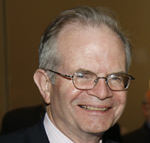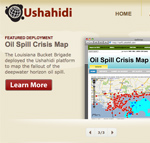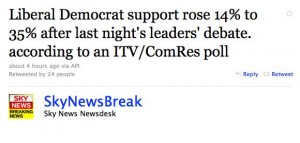Updated 05/08/2010
Recent industry lists ranking the great and good in journalism and the media fell a bit short of the mark for Journalism.co.uk. Where were the online innovators? Where were the journalists on the ground outside of the executives’ offices?
So we’ve compiled our own rundown listing those people we think are helping to build the future of journalism and the news media.
Some important points to note:
- There are no rankings to this list – those included are from such varied areas of work it seemed pointless;
- We will have missed some people out – let us know in the comments below or with the hashtag #jlist who you are working with that should be included;
- We’ve listed groups as well as individuals – with individuals we hope you’ll see them as representing a wider team of people, who have worked together on something great;
- And it’s not limited to 50 or 100 – we’ll see where it takes us…
So here’s the first batch. There’s a Twitter list of those included so far at this link and more will be added in the coming weeks.
Click on the ‘more’ link after these five to to see the full list.
 Tomáš Bella
Tomáš Bella
Tomáš Bella was editor-in-chief and deputy director of Sme.sk, the Slovak republic’s most popular news site. He was author of the first European newspaper-owned blogportal (blog.sme.sk, 2004) and the first digg-like service (vybrali.sme.sk, 2006). In April 2010 he co-founded Prague-based new media consultancy NextBig.cz and is working on a payment system to allow the access to all the premium content of major newspapers and TV stations with one payment.
 Paul Steiger
Paul Steiger
While ProPublica’s not-for-profit, foundation-funded model may be something commercial news organisations can never share, its investment in and triumphing of investigative and data journalism cannot be overlooked. The way in which it involves a network of readers in its research and actively encourages other sites to “steal” its stories shows a new way of thinking about journalism’s watchdog role. Image courtesy of the Knight Foundation on Flickr.
 Chris Taggart
Chris Taggart
Paul Bradshaw’s description of his fellow j-lister: “Chris has been working so hard on open data in 2010 I expect steam to pour from the soles of his shoes every time I see him. His ambition to free up local government data is laudable and, until recently, unfashionable. And he deserves all the support and recognition he gets.”
 Ian Hislop/Private Eye
Ian Hislop/Private Eye
Not much to look at on the web perhaps, but the Eye’s successful mixture of satire, humour and heavyweight investigations has seen its circulation rise. It blaized a trail during the Carter-Ruck and Trafigura gagging ordeal and has even lent it’s support to j-list fellow the Hackney Citizen to protect press freedom from international to hyperlocal levels. Image courtesy of Nikki Montefiore on Flickr.
 Brian Boyer
Brian Boyer
Amidst the talk of what journalists can learn from programmers and what coding skills, if any, journalists need, Brian Boyer was making the move the other way from programming to a programmer-journalist. His university and personal projects in this field have been innovative and have got him noticed by many a news organisation – not least the Chicago Tribune, where he now works as a news applications editor. He blogs at Hacker Journalist.
 Ushahidi
Ushahidi
Originally built to map reports from citizens of post-election violence in Kenya, Ushahidi’s development of interactive, collaborative and open source mapping technology has been adopted by aid agencies and news organisations alike. It’s a new means of storytelling and a project that’s likely to develop more tools for journalists in the future.
